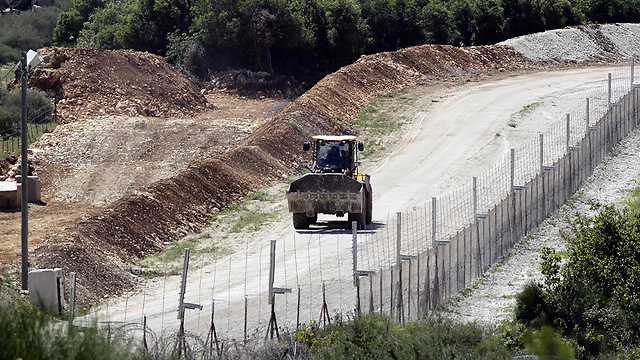Hezbollah taking Israeli war mongers seriously/حزب الله يأخذ بجدية الدعوات الإسرائيلية للحرب
Alex Fishman/Ynetnews/July 04/17
Analysis: Even when Defense Minister Lieberman declares that Israel has no intention of launching a war in Lebanon, Nasrallah doesn’t believe him. He prefers to listen to the underground streams in the defense establishment and in the government, which are pushing for an attack as soon as possible.
In recent weeks, Hezbollah has raised its alert level on the Israel-Lebanon border and somewhat boosted its forces in the area. There is no change in interest or policy behind this move. There has been no military provocation either.
What stirred Hezbollah into action are the reports in Israel about an impending war in the summer. That’s the reason for the alertness, for the boosted forces and mainly for the intensive intelligence gathering along the fence. In light of the comments in Israel, Hezbollah believes that the IDF will take advantage of the organization’s wide deployment in Syria—which has forced it to reduce its forces in southern Lebanon—to attack.
Even when Defense Minister Avigdor Lieberman declares, as he did Sunday in a press briefing with military correspondents, that Israel has no intention of launching a war—neither in Lebanon nor in Gaza—they don’t believe him. Hezbollah Secretary-General Hassan Nasrallah, who considers himself an expert on the state of mind in Israel, prefers to listen to the underground streams in the defense establishment and in the government, which are pushing for an attack as soon as possible rather than waiting for an agreement in Syria.
Israel-Lebanon border. One million residents in southern Lebanon will have no solution in case of a war (Photo: AFP) (Photo: AFP)
Israel-Lebanon border. One million residents in southern Lebanon will have no solution in case of a war (Photo: AFP)
Nasrallah prefers, for example, to believe the covert feelings of an Israeli commander on the border line, who has warned that the fence Israel is building on the border will draw Hezbollah fire in the summer. That commander likely doesn’t understand that every word that comes out of his mouth is perceived by the other side as an Israeli government policy rather than as his own evaluation of the situation. The same applies to the leaks and thoughts of ministers, who wish to tease the defense minister and explain to him what should be done against the arming going on in Lebanon. The other side is taking them seriously.
For a war to break out in Lebanon in the foreseeable future, a dramatic change must take place. If Israel inflicts irreversible damage on the Iranian interest, the Iranians will instruct Hezbollah to attack. A Hezbollah armament that violates Israel’s “red lines”—chemical weapons, for example—will be seen as an invitation for war too. All other parameters, including Hezbollah’s weapon factories in Lebanon, are not a cause for a war. They can be dealt with covertly while keeping a low media profile.
The war plans, on both sides of the border, are ready and have been exercised. There is only one component which lacks a good solution, and which both sides are afraid of, and which is basically the war mongers’ main obstacle: The millions of citizens here and there. While Israel’s preparations for handling the population at a time of war are far more developed than Lebanon’s, Israeli officials understand that evacuating hundreds of thousands of people is a complicated logistic operation that will leave many citizens in the north under fire.
There are some one million residents living in southern Lebanon, who will have no escape in case of a war. Most of them live in about 270 villages and towns that serve as military bases for all intents and purposes, and are therefore seen as legitimate targets for an Israeli strike. Hezbollah members live in those villages, alongside the organization’s obstacles, antitank missiles, explosive devices, mines, rockets, intelligence bases and control headquarters. Each of these villages means dozens of hundreds of targets. Israel has doubled its arsenal of accurate weapons, mainly from the air, to prevent environmental damage, but in light of such a large number of targets and the planned intensity of the Israeli attacks, it won’t be a sterile war. Entire areas will be destroyed.
In Operation Accountability, in 1993, Israel built an “intimidation plan” aimed at scaring off the population to Beirut, in a bid to pressure the Lebanese government. Today, we’re not dealing with leverages but with a fast destruction of targets. The population won’t have time to flee. Thousands of citizens on the Lebanese side will be hurt. Not only will Israel have to answer to the international community and to itself about massive damage to the population, Hezbollah will have to answer to the population in Lebanon.
Neither side feels like starting a war, but flexing muscles is a different story. And this is where the danger lies: The loaded gun has been on the table for 10 years now. There is a very short distance between misreading the map to uncontrolled unsheathing. Nowhere is this demonstrated more clearly that than what happened in the Second Lebanon War and Operation Protective Edge.






















